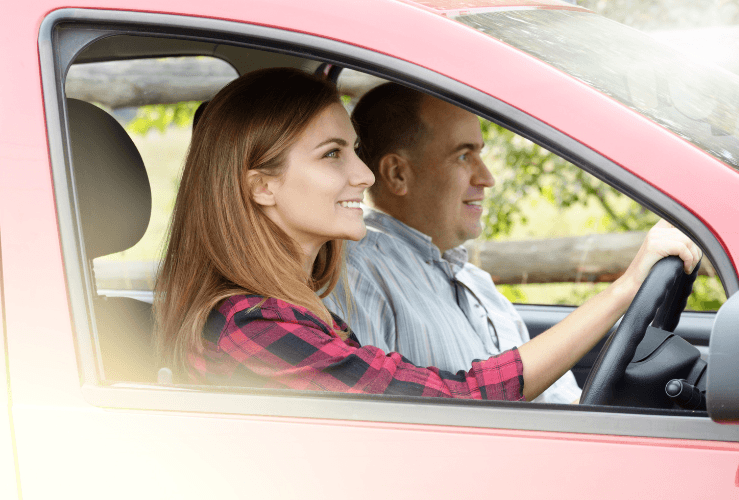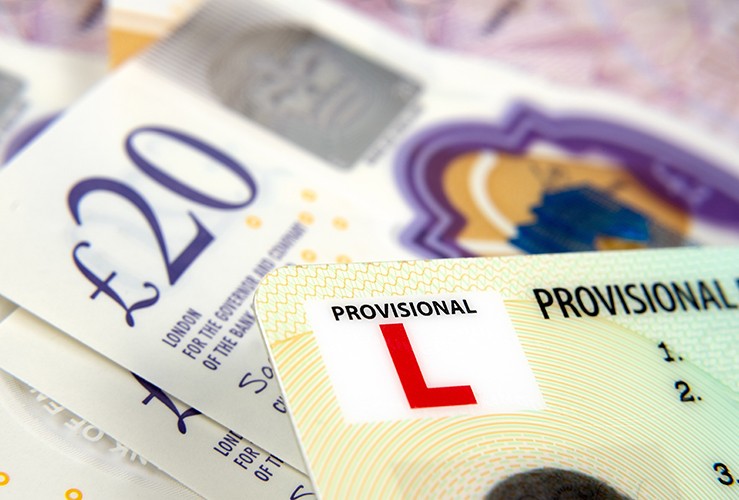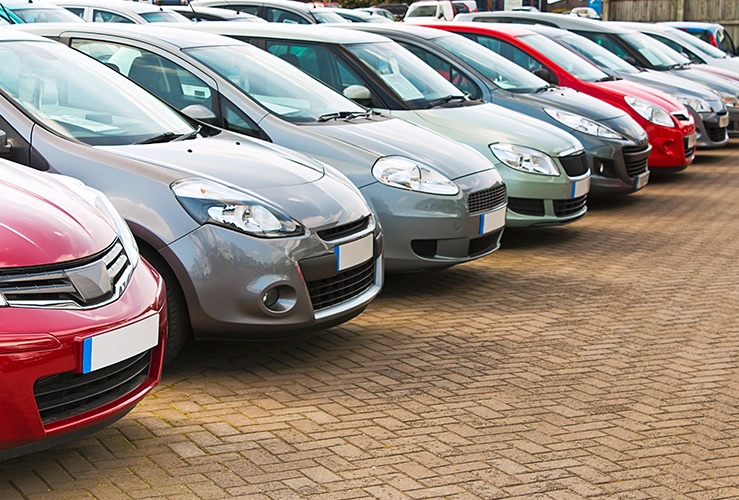How much does it cost to learn to drive?
Learning to drive offers big benefits, from getting to work to road trips and doing the weekly shop. But it comes at a cost.
Driving lessons, licence applications, learning aids, insurance, and of course buying your first car - all add up.
To help you understand the costs involved, this article looks at the essential outgoings on your road to becoming a fully-fledged driver.
But first, let’s look at how old you must be to drive a car in the UK.

When can you learn to drive?
To legally drive a car on public roads you must be 17 years of age.
However, there is an exception, whereby you can start driving a car when you are 16 if you get, or have applied for, the enhanced rate of the mobility component of Personal Independence Payment (PIP).
It’s also possible to undertake 'pre-driver training courses’ on private land before you turn 17. These lessons are often available for 15 or 16 year olds.
How much does a provisional licence cost?
Without a provisional licence, you're not allowed to begin learning.
Online applications to the DVLA costs £34 while applying by post costs £43.
How old do you have to be before you can get a provisional licence?
You must be at least 15 years and 9 months old and be able to read a number plate at a distance of 20m.
Provisional licence cost:
In our example, we'll use the most economical option.
How much do driving lessons cost?
How much are driving lessons in the UK?
Driving lesson prices depend on your location, but the average cost of driving lessons is between £25 and £30 per hour. However, in Central London this may rise to £37 per hour or more.
Introductory offers
You may be able to take advantage of introductory offers to bring this cost down, but it will still add up over time.
You can get a better idea of this significant cost by searching ‘driving lessons near me prices’.
How long does it take to learn to drive?
The DVSA estimates it takes 45 hours of lessons to learn to drive, plus another 22 hours of practising.
If you're ready to take your test before the 45-hour mark, your instructor should inform you, potentially saving you a significant sum.
You may be able to speed up the learning process with lessons from a friend or family member. This could help bring down the cost of driving lessons overall.
Average cost of learning to drive
Assuming it does take 45 hours at £30 per hour, the average cost of learning to drive so far as your driving lessons cost would be £1,350.

How much is the UK driving theory test?
You must pass the theory test before you can attempt the practical test.
When can I take my driving theory test?
The theory test can be taken as soon as you get your provisional licence, although you may wish to get some on-the-road experience under your belt beforehand.
Theory test cost
In our example we'll assume you pass first time.
Booking a theory test costs £23.
Theory Test Kit app cost
The Official DVSA Theory Test Kit app may help you pass the first time round. This costs £4.99 (rounded to £5 below).
How much does the practical driving test cost in the UK?
Before you get your full driving licence, you'll need to pass your practical exam.
How much does a practical driving test cost?
A practical driving test In the UK costs £62 during the week and £75 on the weekend.
The latter may be an option if you’re working or studying full time during the week.
Driving test in instructor’s car
Many learners decide to take the test in their instructors' car.
If you opt for this route, you'll need to add the cost of another hour lesson - including the 40 minute test and the 'show me tell me' test - (explaining and then showing how you would carry out a safety task), plus the eye test.
Practical driving test cost
Taking the weekend test rate and another 30 lessons, the practical test section adds £105 to the running total.

Buying a car: How much does it cost to buy a car?
Next, you'll need a car.
You might buy this with your own savings or with help from your family.
Used car v’s new car
Naturally, a used car is considerably cheaper than a new one.
What is the average cost of a first car in the UK?
The average cost of a first car in Britain is £3,562, according to Mawcomms.
Tips for buying a used car
Check out our guide to buying a used car to avoid overpaying for repairs and maintenance. If you're a young driver, be sure to explore our list of the top 10 cheapest cars to insure, so you can keep your motoring costs low from the start.
Learner insurance and regular insurance
What is learner insurance?
Learner insurance is designed for those who wish to gain driving experience with the help of a family member or friend.
It's a flexible, short term insurance and is offered by many of the big name cover providers.
Six months of learner insurance would cost around £300, depending on things like where you live and your age.
Learner driver as named driver
Alternatively, a family member might include you as a 'learner driver as a named driver' on their existing insurance, but this will be more costly than learner insurance.
Regular car insurance
Once you've passed your test, you'll need to get regular car insurance.
How much is car insurance for young drivers?
According to the Association of British Insurers (ABI), for someone aged between 18 and 20, car insurance costs an average of £972 per year.
Black box insurance
You may be able to reduce your insurance costs by taking our black box insurance - which works by having a device installed in your car that monitors your driving.
If you drive safely, you’ll be rewarded with a lower car insurance premium.
Accurately estimate mileage
Try not to overestimate how far you will drive in a given 12 months; taking out a policy covering 10,000 miles per annum will be an unnecessary cost if you only drive 4,000 miles in that time.
Equally, ensure you don’t underestimate your mileage.
Tax: How much is VED?
Another unavoidable cost is vehicle tax.
How much does vehicle tax cost?
If buying a brand new vehicle, the first 12 months' tax will be different to the second and onwards tax payments.
However, since most new drivers will be buying a used car, we've taken the second year and onwards taxes as an example.
Will I have to pay vehicle tax on an electric car?
Opting for an electric car will mean this cost is avoided.
Running costs should also be lower compared to petrol or diesel.
However, the initial cost of a used electric vehicle may be higher than say, a comparable used petrol-fuelled car.
Vehicle tax costs
The table below shows the costs involved, which are based on the vehicles' fuel type.
It will cost you slightly less if you pay for the year in one go.
Note that newly registered vehicles with a list price exceeding £40,000 attract an additional £335 a year - although this won't be relevant to the vast majority of new drivers.
In our example, we'll use the single 12-month payment of £145.
Vehicle tax for second year onwards
| Fuel type | Single 12-month payment | Single 12-month payment by Direct Debit | Total of 12 monthly payments by Direct Debit | Single 6-month payment | Single 6-month payment by Direct Debit |
| Petrol or diesel | £145 | £145 | £152.25 | £79.75 | £76.13 |
| Electric | £0 | N/A | N/A | £0 | N/A |
| Alternative* | £135 | £135 | £141.75 | £74.25 | £70.88 |
Quick tips for cutting the cost of learning to drive:
- Compare quotes from several driving instructors - and choose the cheapest one (while ensuring they are reputable)
- Book lessons in bulk - discount are often available
- Book two hour lessons - these are usually a little cheaper
- Get extra lessons from a friend or family member
- Opt for black box insurance - safer drivers are offered lower premiums
- Increase your voluntary excess - this will reduce your premium
- Add an alarm or immobiliser - this should bring down the cost of cover





